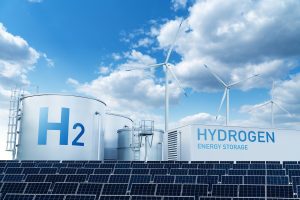The second annual edition of the Inside Green Innovation: Progress Report 2022, from leading intellectual property firm Appleyard Lees, analyses patent filings across several key environmental issues facing the world, including energy technology and potential solutions such as green hydrogen.
Patent attorney Chris Mason, Senior Associate at Appleyard Lees, said: “Hydrogen is enjoying renewed and rapidly growing attention, particularly as its combustion produces no carbon dioxide, very little air pollution and it has the potential to decarbonise heavy industries where it’s both difficult and urgent.
“However, as grey hydrogen still dominates the market – and creates an environmental impact – the technology needs significant innovation and capital investment across production, storage and use for green hydrogen to help the world meet its climate goals.”
Innovation in green hydrogen production from electrolysis, according to the latest patent filings, comes mainly from chemical rather than electrical and mechanical engineering aspects.
Each of the three principal electrolysis methods for producing green hydrogen – alkaline, polymer electrolyte membrane (PEM) and solid oxide electrolysis – are all seeing innovation, with significant growth in numbers of patents filed in the past five years.
Mason explained: “Future advances in industrialising green hydrogen production are likely to come from developments in materials, surfaces and coatings, but more disruptive innovations relating to the broader process should also not be ruled out.”
Multinational companies including Honda, Toshiba, Siemens and Linde are leading the way in patent filings, along with specialist hydrogen start-up businesses like South Korea’s Kwatercraft and more established firms including Japan’s Kobeico ECO solutions.
“Hydrogen technology still needs to advance significantly in some areas, in particular production, distribution, and storage – with technology support via high levels of capital investment and government support – before it can become truly viable and mainstream, but it is clear that industry sees a way forward with increasing investment in innovation,” Mason added.
Image © Convisum | Dreamstime.com






